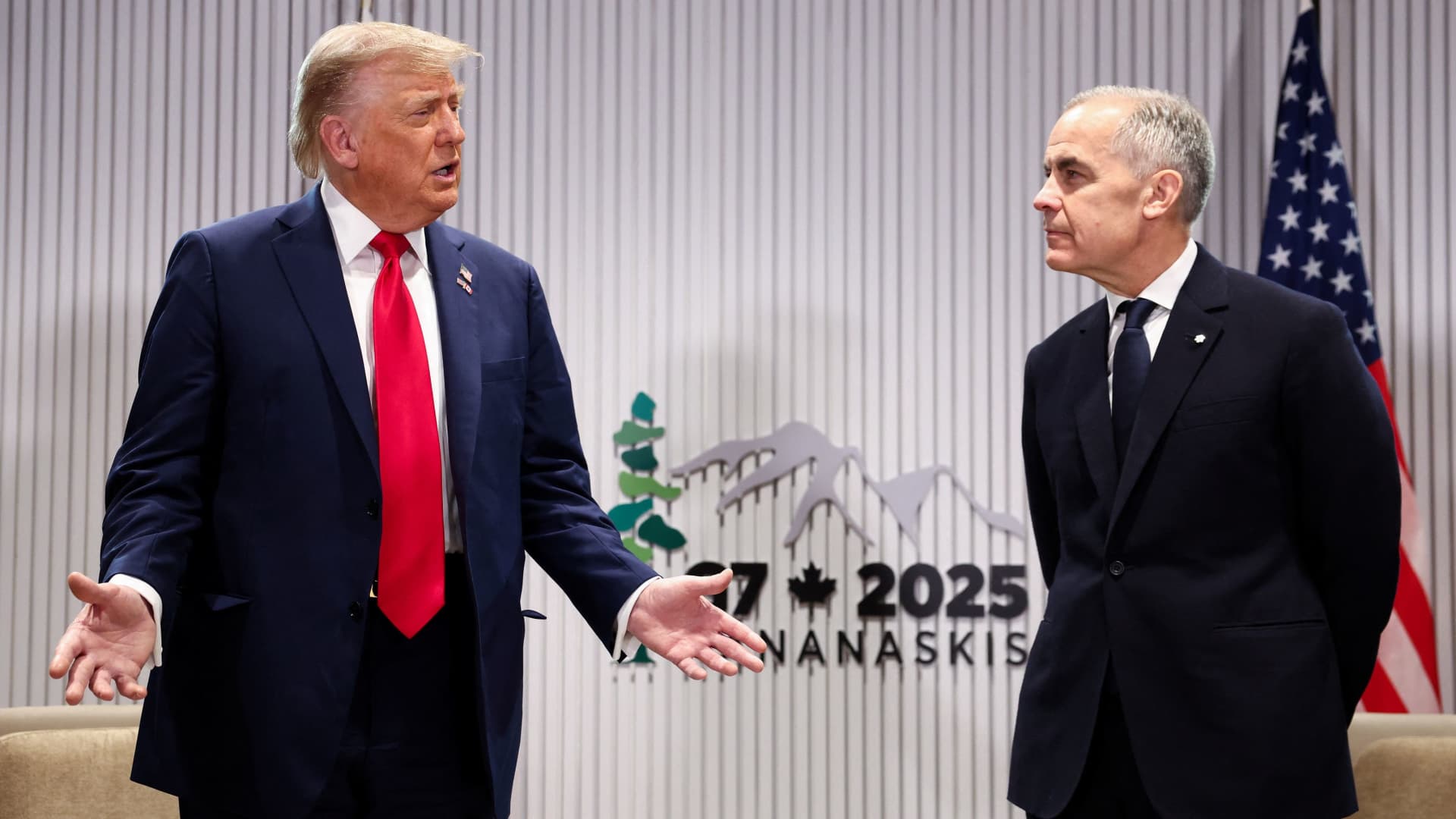U.S. President Donald Trump announced on Friday that the United States is immediately “terminating ALL discussions on Trade with Canada” in response to Ottawa’s decision to impose a digital services tax on American tech firms. The announcement was made during a meeting with Canadian Prime Minister Mark Carney at the G7 summit in Kananaskis, Alberta, and was later shared on Trump’s social media platform, Truth Social.
Trump accused Canada of “copying the European Union” with what he described as an “egregious” tax. The digital services tax, which was enacted last year and applies retroactively to 2022, targets both domestic and foreign tech companies, including U.S. giants such as Amazon, Google, and Meta. The first payments are set to be collected on Monday.
Implications of the Trade Halt
The abrupt termination of trade talks with Canada, a longstanding ally and one of America’s top two global trading partners, could have significant economic repercussions. U.S. goods trade with Canada totaled roughly $762 billion last year, according to the office of the U.S. trade representative. Trump’s declaration has already impacted financial markets, with the S&P 500 and the Nasdaq Composite pulling back from record highs reached earlier in the day.
In his post, Trump stated, “We will let Canada know the Tariff that they will be paying to do business with the United States of America within the next seven day period.” This suggests potential retaliatory tariffs that could further strain the economic relationship between the two nations.
Background and Context
The digital services tax has been a contentious issue between the U.S. and several countries, including those in the European Union. The tax is designed to ensure that tech companies pay a fair share of taxes in countries where they generate significant revenue but have little physical presence. However, the U.S. government has consistently opposed such measures, arguing that they unfairly target American companies.
Canada’s decision to proceed with the tax, despite U.S. opposition, underscores a broader trend of countries seeking to regulate and tax digital services more robustly. Canadian officials have stated that they will not pause the tax, indicating a firm stance on the matter.
Expert Opinions and Analysis
Trade experts warn that the termination of talks could lead to a tit-for-tat escalation, with both countries imposing tariffs that could harm economic growth. “This move could disrupt supply chains and increase costs for businesses and consumers on both sides of the border,” said Dr. Emily Chen, a trade policy analyst at the International Economic Forum.
Comparatively, the European Union’s digital tax has similarly faced pushback from the U.S., leading to ongoing negotiations. The situation with Canada could mirror these tensions, potentially leading to a prolonged trade dispute.
Looking Ahead
The next steps remain uncertain, as the Canadian government has yet to respond officially to Trump’s announcement. The office of Prime Minister Mark Carney did not immediately reply to requests for comment. Analysts suggest that diplomatic efforts may be necessary to de-escalate the situation and find a mutually agreeable solution.
Meanwhile, businesses and investors are closely monitoring developments, as any increase in tariffs could impact a wide range of industries. The coming days will be critical in determining whether the two countries can navigate this impasse or if a more significant trade conflict looms on the horizon.
This is a developing story. Please refresh for updates.





































































